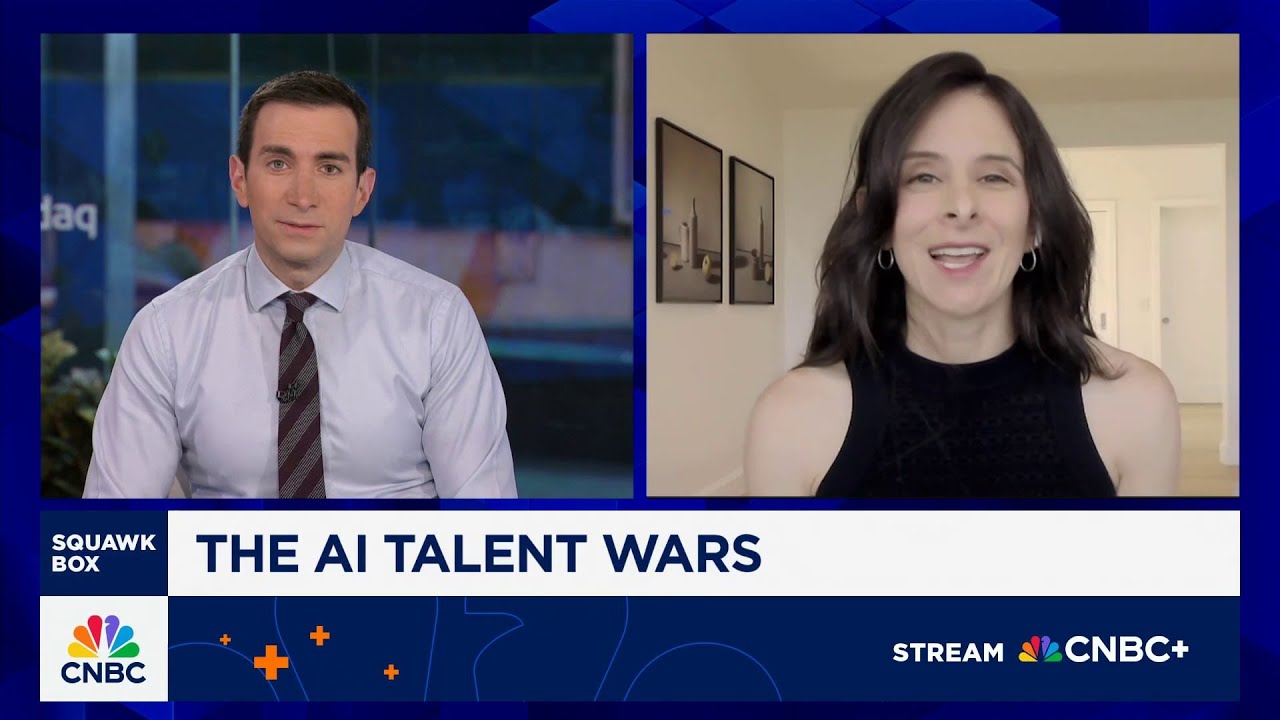Jessica Lessin, CEO of The Information, highlighted that the AI industry is consolidating with major companies like Meta and Google “acqui-hiring” top talent through high compensation to strengthen their AI capabilities, driven more by access to cutting-edge resources than just financial incentives. She also noted regulatory concerns around this practice, Meta’s focus on “personal superintelligence” to enhance user experience, and the critical importance of computing power in determining success in the AI race.
In the recent discussion on Squawk Box, Jessica Lessin, founder and CEO of The Information, highlighted the ongoing consolidation in the AI industry, where large companies like Meta and Google are acquiring startups primarily to hire talented engineers rather than to purchase entire companies. This trend, often described as “acqui-hiring,” involves paying extraordinarily high compensation packages to attract top AI researchers. Lessin noted that this phase of the AI race is intensifying, with the strongest players gaining more power and resources, particularly in terms of investment and recruitment capabilities.
Lessin addressed concerns about the impact of these massive compensation packages on employee motivation and company culture. While historically, large payouts have sometimes led to complacency, the current wave of AI researchers appears highly driven by the opportunity to work on groundbreaking technology. She emphasized that these researchers are motivated by access to cutting-edge computing resources and the chance to make significant advancements in AI, rather than just financial incentives. However, she acknowledged that the long-term effects on team dynamics and morale remain uncertain.
The conversation also touched on the regulatory implications of acqui-hiring, which some companies use as a strategy to circumvent antitrust scrutiny. By hiring key individuals instead of formally acquiring companies, tech giants can avoid the more rigorous approval processes from bodies like the FTC or DOJ. Lessin pointed out that regulators are aware of this tactic and are monitoring the situation, but the practice continues because it allows companies to quickly bolster their AI capabilities without the complexities of full mergers.
Regarding Meta’s position in the AI landscape, Lessin shared insights from her recent interview with Mark Zuckerberg. He is focusing on a unique vision of “personal superintelligence,” aiming to enhance the daily lives of billions of Meta users through AI-driven personal assistance. This approach contrasts with other companies that prioritize economic efficiency or productivity tools. Zuckerberg envisions AI that can, for example, help users remember and act on important follow-ups from conversations, signaling a shift toward more personalized AI applications.
Finally, Lessin highlighted the critical role of access to computing power, particularly GPUs, in the AI race. She suggested that the allure for top researchers is not solely the financial rewards but also the ability to leverage vast computational resources to push AI development forward. Zuckerberg believes Meta holds a strong position in this area, which could be a decisive factor in the company’s success. The discussion concluded with the observation that “personal superintelligence” is becoming a new focal point in AI, potentially replacing previous buzzwords like AGI, signaling evolving ambitions within the industry.
